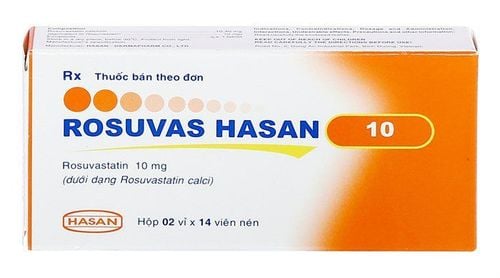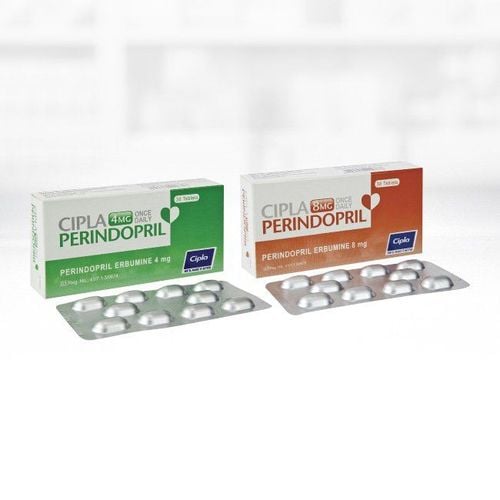This is an automatically translated article.
Posted by Master, Specialist II Pham Tuyet Trinh - Head of Inpatient Unit - Cardiovascular Center - Vinmec Times City International Hospital
Cardiovascular disease is the leading cause of death worldwide, so its prevention is extremely urgent. In addition to the recommended methods, you can also take measures to prevent cardiovascular disease without drugs in the following article.
1. Walking - Effective prevention of cardiovascular disease
According to some studies, you only need to exercise 3-4 times a week, each time for about 40 minutes or 25 minutes with heavy sports such as jogging, which can help lower blood pressure, control cholesterol and reduce cholesterol. body weight. You don't need to do a lot of exercise at once, even 10 minutes of physical activity can help strengthen your heart. For example, taking your dog for a walk, walking with you in the park. You should consult your doctor to see how much physical activity you are able to do.
2. Meet friends, have lunch
Making friends can literally help keep your heart healthy. Research has shown that being alone or even being lonely is as bad for your heart as smoking, high blood pressure, obesity, and physical inactivity. It doesn't matter how often you see you, it matters how you connect with others. Therefore, you should make plans to meet old friends and should join some new meet-up clubs.
3. Eat more vegetables and fruits
Nutrients, fiber (low calorie and fat) not only keep your heart healthy, but they also contain antioxidants - these are substances that help protect cells from damage that causes diabetes diabetes or heart disease.
Therefore, you should try to diversify your daily meals or you can add these beneficial foods to your favorite dishes such as adding vegetables to your pizza, or fruit to your bowl of cereal. whole grain cup.

4. Snack on nuts
The fiber, unsaturated fats or omega 3 fatty acids in nuts help the body reduce inflammation, reduce bad LDL cholesterol and reduce the accumulation of plaque inside the blood vessels, all Both are associated with cardiovascular disease. They can help protect against blood clots that cause strokes.
The nuts you choose may vary, but they are high in calories, so you should not eat much, only about 4 small handfuls of salt-free nuts in a week.
5. Eat more fish
One of the measures to prevent cardiovascular diseases is that you should add fish to your weekly diet. Accordingly, you should eat fatty fish twice a week such as salmon, mackerel, sardines or tuna. One serving of fish contains omega-3 fats, along with other heart-healthy ingredients. However, there is also an opinion that between farmed fish and wild-caught fish, the beneficial components are also different.
6. Exercising outside of sports practice time
Sports activities not only exercise but also reduce the risk of cardiovascular diseases. In fact, in cardiovascular treatments, doctors also recommend that patients should be physically active every day.
Any physical activity throughout the day will be beneficial, because if you have a habit of exercising and lying in place, it is also harmful to the body. You can do your usual daily activities like gardening, babysitting, walking to the bus stop, or just cleaning the house, all of which are good physical activities for the body. .
7. Do some yoga
These are not just physical activities, but yoga helps you calm down, reduce stress, thereby helping to reduce heart rate, lower blood pressure, and help reduce anxiety. All of these activities are great for the heart.
If yoga is not your thing, choose other types that can help you relax and reduce stress like meditation or listening to your favorite music.
8. Sleep at least 7 hours a day
The body needs rest for a while to recover. You need enough and deep sleep. When you sleep soundly, your heart rate and blood pressure drop, this time the heart will be at rest. This is the key to a healthy heart. If you don't get enough sleep, the body is always in an alarm state, it will stimulate the production of chemicals to prevent the body's self-balancing, over time, the self-balancing will be lost, causing disorders such as inflammation increases, blood sugar levels rise. These disorders are very harmful to your heart.

9. Find the cause and treat it if you have sleep apnea
Some people who snore often wake up gasping, tired, and sleepy the next day, despite having slept all night. These symptoms indicate sleep apnea — a condition that makes you more likely to have a stroke, high blood pressure, or heart disease. At that time, you need to see a doctor to find out the cause, treat snoring, help you get a good night's sleep and protect your heart from complications.
10. Quit smoking
Smoking is very harmful to health, they increase blood pressure, hinder physical activity. Even when smoking makes the blood more likely to form blood clots, increasing the risk of stroke. Research shows that your risk of having a heart attack drops as soon as you quit smoking within 24 hours. So you should see a doctor or join clubs and seminars for advice on how to quit smoking and protect your heart.
11. Stay sexually active
According to many studies, people who maintain sexual activity 1-2 times a week have a lower risk of cardiovascular disease than only maintain once a month / month. However, the mechanism is not clear so far, scientists believe that sexual activity helps protect the heart, whereas healthy people will have good sexual activity.
12. Keep a healthy body weight
According to statistics on different populations, being overweight increases the incidence of hypertension, dyslipidemia and increases the incidence of diabetes. All of these conditions are associated with cardiovascular disease. However, you should not apply an unbalanced diet to lose weight, but you should combine physical activity with a scientific and reasonable diet, this is the best way to adjust your weight. . You should consult your doctor about your body mass index in order to lose weight.
13. Flu prevention
Scientists have shown that flu vaccination helps protect the heart, especially in people with high blood pressure, dyslipidemia, and smokers. One theory is that the flu causes inflammation, which leads to heart attacks and strokes. In addition, the flu virus can overload the heart. Therefore, you should get a flu shot if you have any of these illnesses.
14. Avoid sitting too much
If you sit a lot, you have a higher risk of cardiovascular disease, due to low energy consumption. Besides, sitting a lot also changes the metabolism of sugar and fat in the body, these disorders are related to cardiovascular disease. Therefore, you should stop sitting a lot, should stand, walk and move around the workplace after an average of every hour/time.
One measure to prevent cardiovascular disease is that you need to have regular health check-ups, your doctor will help you assess your cholesterol and blood sugar levels, whether your blood sugar is disordered or not? If you have a disorder, you are also screened to see if there are any complications on the heart and on the blood vessels. From there, appropriate treatment with drugs or appropriate lifestyle changes to prevent cardiovascular disease.
To protect cardiovascular health in general and detect early signs of cardiovascular disease, customers can register for cardiovascular disease screening and examination packages of Vinmec International General Hospital. The examination package helps to detect cardiovascular problems at the earliest through tests and modern imaging methods. The package is for all ages, genders and is especially essential for people with risk factors for cardiovascular disease.
Please dial HOTLINE for more information or register for an appointment HERE. Download MyVinmec app to make appointments faster and to manage your bookings easily.
References: webmd.comReviewed by James Beckerman, MD, FACC on March 04, 2020














